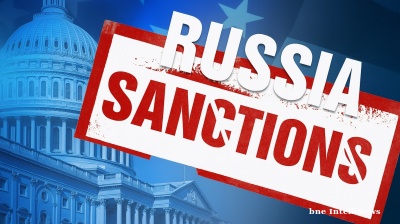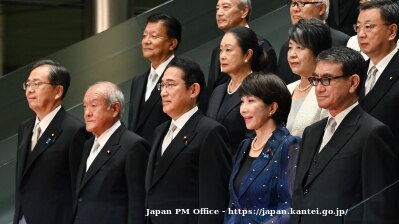It is a strange paradox that Taiwan, one of Asia’s most vibrant democracies and a technological powerhouse, remains unrecognised as a sovereign state by most of the world. Its president, (William) Lai Ching-te, elected in January 2024, continues the careful dance of ambiguity that his predecessors perfected - asserting de-facto independence while stopping short of a formal declaration.
But the time for such half-measures may be coming to an end. The question facing Lai is stark and pressing: if Taiwan is indeed independent - as he claims - then why not say so plainly, officially, and to the world?
Lai, a self-proclaimed pragmatic worker for Taiwanese independence, now seems less a standard-bearer of sovereignty and more a cautious custodian of the status quo. Since taking office, he has repeatedly stated that Taiwan is "already independent" and therefore there is "no need to declare it"—a line he also used while serving as vice-president under former President Tsai Ing-wen. This rhetorical sleight of hand, however, increasingly resembles a retreat into ambiguity, rather than a confident assertion of statehood.
Taiwan’s constitutional reality is, in practice, separate from the People's Republic of China (PRC). It has its own government, military, currency, and elections. Yet it exists in diplomatic limbo, recognised by only 11 United Nations member states and the Vatican according to the Ministry of Foreign Affairs in Taipei. The rest of the world, including the United Kingdom and the United States, adhere to the “One China” policy, recognising Beijing as the sole legal government of China, while maintaining informal relations with Taipei through trade offices.
Lai’s refusal to make a clear declaration of independence is, of course, rooted in fear - fear of Beijing’s response, which could be swift, fierce and possibly catastrophic.
The Chinese Communist Party (CCP) has made no secret of its intentions. President Xi Jinping, in his 2024 New Year address, reiterated that “reunification” with Taiwan is “a historic mission” as was reported by Xinhua at the time. The PRC’s Anti-Secession Law (2005) explicitly authorises the use of “non-peaceful means” should Taiwan move toward formal independence.
Indeed, in recent months, China has increased its military pressure around Taiwan. Large-scale naval exercises have repeatedly encircled the island, and cyberattacks targeting government infrastructure have surged. According to the Taiwanese Ministry of National Defence, Chinese military aircraft made over 2,000 incursions into Taiwan’s air defence identification zone (ADIZ) in 2024 alone. The threat is not hypothetical - it is real and escalating.
Yet Lai’s reticence cannot be justified solely by the threat of Chinese aggression. Taiwan has lived under the Chinese shadow for decades.
What has changed is the world’s growing realisation that Beijing’s threats are no longer containable through appeasement. The war in Ukraine has taught the West that authoritarian regimes must be confronted early and clearly. Likewise, the Chinese crackdown in Hong Kong has destroyed any illusions that "one country, two systems" could ever work for Taiwan.
Hong Kong fell – a term many in East Asia are uncomfortable with – relatively easily. Taiwan must never follow suit.
And so, a failure to assert independence on moral grounds becomes even more untenable. Lai leads a democratic society. Polling by the Taiwan Public Opinion Foundation (TPOF) in June 2025 shows that 77% of Taiwanese identify as “Taiwanese” rather than “Chinese”. The majority support formal independence if it does not lead to war.
In short, Lai has a mandate - not necessarily for immediate confrontation, but certainly for moral clarity.
Moreover, Taiwan’s geopolitical value has never been higher. It is the linchpin of global semiconductor production, home to TSMC, which supplies over 50% of the world’s advanced chips. It is a key partner in the first island chain, crucial to the United States and its allies in deterring Chinese expansionism. The G7 communiqué in 2025 once again affirmed “the importance of peace and stability across the Taiwan Strait” signalling growing international alignment behind Taipei, even if formal recognition remains elusive.
In this context, a formal declaration of independence would not be merely symbolic, it would reshape global diplomacy. It would force democratic nations to reckon with the hypocrisy of supporting Taiwan in practice but denying its sovereignty in principle.
It would also offer clarity and direction to a population that has, for too long, been asked to accept strategic ambiguity as a form of national identity.
Lai’s caution may be ‘strategic’, but it risks becoming paralysis. History does not favour the timid. Had leaders of other would-be nations hesitated in the face of superior force, many of today’s democracies would never have emerged. The Baltic states declared independence from the Soviet Union in 1990 despite overwhelming odds. Kosovo unilaterally declared independence from Serbia in 2008. In both cases, recognition followed - not universally, but sufficiently to secure their place on the global stage.
Of course, the consequences of Lai making a formal declaration would be grave. China may impose a naval blockade, escalate cyberwarfare, or even consider military action. But is perpetual ambiguity really safer?
The more Taiwan postpones a reckoning, the more emboldened Beijing becomes. By hiding behind the notion that "independence already exists", Lai risks sleepwalking into a future where Taiwan is annexed not by invasion but by political erosion and international indifference.
William Lai’s refusal to declare independence may preserve the uneasy calm for now, but it also denies his people the clarity they deserve, and the nation the recognition it has earned.
Taiwan is independent. It is time to say so.
Opinion

COMMENT: ANO’s election win to see looser Czech fiscal policy, firmer monetary stance
The victory of the populist, eurosceptic ANO party in Czechia’s parliamentary election on October 6 will likely usher in a looser fiscal stance that supports growth and reinforces the Czech National Bank’s recent hawkish shift.

COMMENT: Ukraine's drone attacks on Russian refineries have probably reduced throughput by 30.4%, less than headline figures suggest
Ukraine has been hitting Russian refineries and caused a fuel crisis that has spead across multiple regions. The headline figure is that oil refining has been reduced by 38% since August, but digging into it and the reduction is likely less.

MACRO ADVISORY: The unintended consequences of Western sanctions
Since 2014, Western nations have hit Russia with a total of 26,655 sanctions (to mid-September 2025), with 23,960 coming after February 2022. The largest target group, with 13,611 sanctions, is state officials, business owners, and oligarchs.

PANNIER: Few will mourn passing of Turkmen Iron Lady Atajanova and Uzbek Grey Cardinal Jurabekov
Their deaths seem to have been conveniently overlooked for the most part by the authorities of today.
_Cropped_1759411324.jpg)



